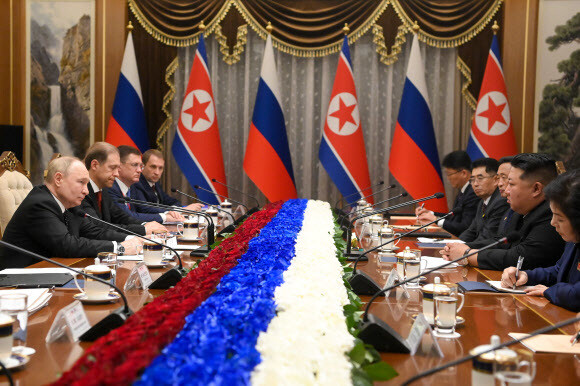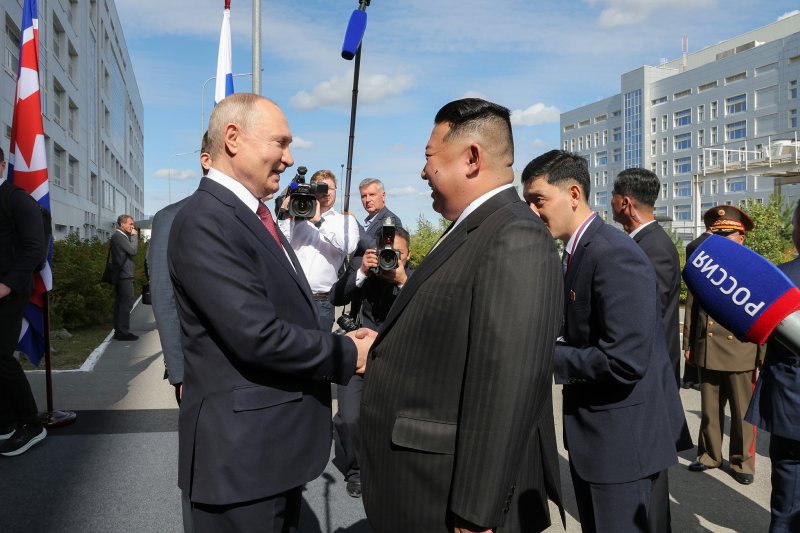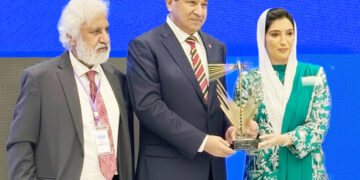By: Kim Tea-hoon.
Russian President Vladimir Putin visited Pyongyang to talk with North Korean leader Kim Jong-un in June 19, 2024. The highlight of the summit was the signing of a “Comprehensive Strategic Partnership Agreement.” Of particular interest to the international community is Article 4, which stipulates that “if either party enters a state of war due to military invasion, the other party will provide immediate military and other assistance.” This provision has raised concerns about South Korea’s security, given the ongoing armistice with North Korea, and the possibility of destabilizing the balance of power in Northeast Asia. Furthermore, the agreement could serve as a legal justification for Russia to import weapons, such as artillery shells, from North Korea, presenting an even more immediate danger to Ukraine, which remains at war with Russia. According to the South Korean Ministry of National Defense, approximately 12,000 containers suspected of carrying artillery shells were shipped from North Korea to Russia between August last year and July this year. In return, North Korea is reportedly seeking advanced Russian technology to develop weapons, including reconnaissance satellites. These transactions are clear violations of UN Security Council sanctions against North Korea.


Russia’s invasion of Ukraine, involving the deliberate or indiscriminate use of weapons to target civilians and civilian infrastructure, constitutes a grave violation of the Geneva Conventions of August 12, 1949. Weapons provided by North Korea to Russia have been repeatedly used in attacks on Ukrainian civilians. The Ukrainian military has consistently presented evidence of North Korean artillery shells employed by Russian forces in assaults on civilian infrastructure. In February of this year, Russia launched over 20 North Korean ballistic missiles at Kyiv and other regions, resulting in the deaths of at least 24 civilians and injuring more than 100. Furthermore, on August 10, Russian forces deployed four North Korean KN-23 short-range ballistic missiles to strike major Ukrainian cities, killing two civilians, including a 4-year-old child, and injuring three others. Civilian casualties have continued to rise from these attacks. Earlier, in April, the UN released a report confirming that missile debris from a January attack on a residential area in Kharkiv was identified as remnants of a North Korean short-range ballistic missile, the Hwasong-11.


In March 2023, the ICC issued an arrest warrant for Putin on war crime charges, including the forced relocation of children. This has made Putin a “wanted fugitive” in the international community, exposing him to the risk of arrest if he travels to any of the 124 ICC member states. Moreover, the Russian government, which has consistently denied war crime allegations, is likely bewildered by the rejection of their claims by the ICC and other supranational bodies.
The ICC’s arrest warrants serve as a powerful tool of psychological pressure on those responsible for crimes against humanity, while also delivering a clear warning. Kim Jong-un, who has long oppressed the North Korean people, is now endangering the lives of Ukrainian civilians through his recent alliance with Putin. The international community must send a strong waming to the Kim Jong-un regime, condemning its dictatorship and tyranny, and intensify psychological and diplomatic pressure to stop Kim from supplying weapons used in the massacre of Ukrainian civilians. Putin, who has maintained a near-absolute power in Russia and threatened neighboring countries through invasions, eventually faced an ICC arrest warrant.




















